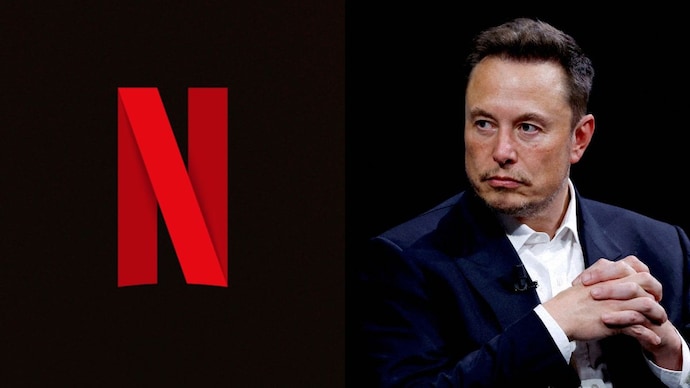By The FINANCIAL
Copyright finchannel

The FINANCIAL — Elon Musk has recently urged his followers to cancel their Netflix subscriptions, citing concerns over the platform’s content and its potential impact on children. His call to action follows a controversy involving Hamish Steele, the creator of Netflix’s animated series Dead End: Paranormal Park. Steele faced backlash after allegedly mocking the assassination of conservative figure Charlie Kirk, a claim he has since denied. Musk condemned the remarks as “not OK” and announced he had canceled his own Netflix subscription in protest.
Musk’s criticism of Netflix may be influenced by both financial and political considerations. As the owner of X (formerly Twitter), Musk has a vested interest in promoting his own platform over competitors. By encouraging a boycott of Netflix, Musk could be attempting to shift users’ attention and subscriptions towards X, aligning with his broader strategy to dominate the social media landscape.
Politically, Musk’s actions resonate with conservative audiences who view Netflix’s content as promoting progressive ideologies. By aligning himself with these sentiments, Musk may be positioning himself as a champion of conservative values, appealing to a demographic that is increasingly influential in political discourse.
Netflix’s Ideology and Content Criticisms
Netflix has been at the center of debates over its content, particularly regarding its representation of LGBTQ+ themes. Shows like Dead End: Paranormal Park, which features a transgender character, have drawn criticism from conservative groups who argue that such content is inappropriate for children and promotes a “pro-trans” agenda. Critics contend that Netflix’s programming choices reflect a broader ideological stance that aligns with progressive social movements.
Reed Hastings, Netflix’s co-founder and former CEO, has been an advocate for various social causes, including charter schools and racial equity. His philanthropic efforts and political donations suggest a commitment to progressive values, which may influence the company’s content decisions
Behind Netflix: Leadership and Influence
Netflix’s leadership has played a significant role in shaping its corporate culture and content strategy. Hastings is known for his emphasis on innovation and risk-taking, encouraging a culture of “freedom and responsibility” within the company. This approach has led to the production of diverse and, at times, controversial content that reflects the company’s commitment to inclusivity and representation.
The company’s board and leadership team, including figures like Ted Sarandos, have been instrumental in driving Netflix’s direction. Their decisions regarding content production and acquisition are influenced by a combination of market trends, audience demand, and the company’s ideological stance on social issues.
Elon Musk’s call to boycott Netflix highlights the intersection of media, politics, and corporate interests. While his actions may be driven by personal and financial motivations, they also reflect a broader cultural divide over issues of representation and ideology in entertainment. As the debate continues, both Netflix and Musk’s platforms will likely remain at the forefront of discussions about the role of media in shaping societal values.
Throughout 2025, Trump has repeatedly threatened to impose a 100% tariff on any films produced outside of the United States, which has caused concern and volatility in the entertainment industry.
Trump has claimed on his Truth Social platform that other countries have “stolen” the movie-making business from the U.S. and that these tariffs are necessary to protect American jobs.
The announcement has directly affected Netflix. In May and September 2025, reports indicated that Netflix’s stock dropped following Trump’s renewed tariff threats.
In response, Netflix has publicly emphasized its commitment to U.S.-based production. A July 2025 earnings report highlighted the company’s multi-billion dollar investment in content made within the country and plans for new American production facilities.
In December 2024, after winning the election, Trump met with Netflix co-CEO Ted Sarandos. This came despite Sarandos’ history of donating to Democratic candidates. The purpose of the meeting was not publicly disclosed.
Netflix’s annual revenue was $39.0 billion, which comes almost exclusively from its core streaming business.
Amazon Prime Video’s specific annual revenue is not broken out separately, but analysts estimate its annual revenue to be around $14 billion in 2023. The broader Amazon “subscription services” segment, which includes Prime Video, reached $39.0 billion in 2024.



